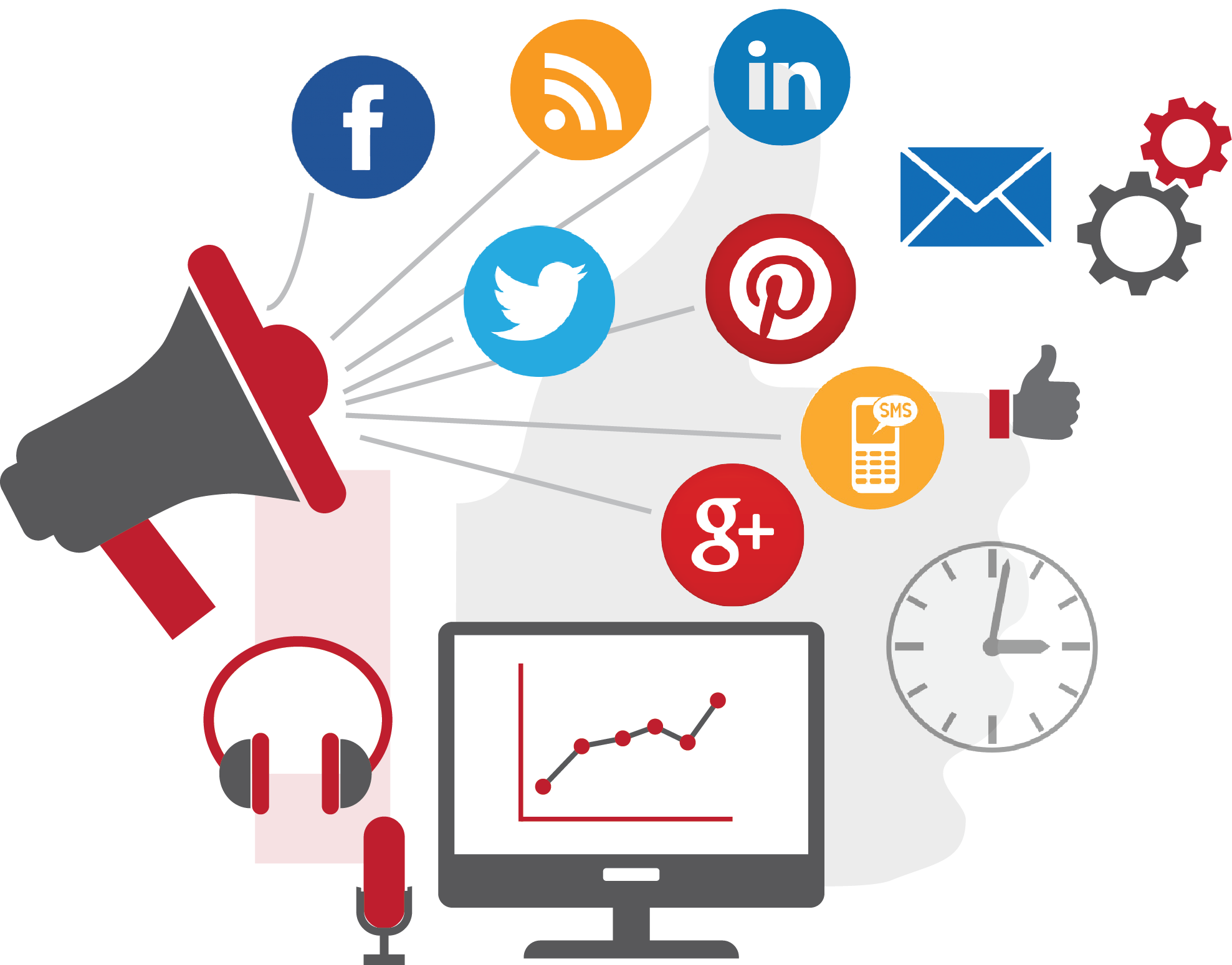Create your own
Digital Marketing Course
Marketing through digital platforms has become a trendy topic in today’s world. Most of the people navigate online before buying any product. As a result, digital marketing has turned into a smart business strategy capable of drawing potential buyers by product promotion. According to global industry analysts, this upward trend of online marketing might hit the mark of 786.2 billion dollars by 2026. If you want to learn about online marketing strategies or expand your business reach, enroll in this course now.

Course Curriculum
1. Search Engine Optimization (SEO):
- SEO is the process of optimizing your website to rank higher in search engine results pages (SERPs) for relevant keywords. The goal is to increase organic (non-paid) traffic to your website.
- On-page SEO: Optimizing content, titles, headings, and URLs.
- Off-page SEO: Building backlinks and increasing site authority.
- Technical SEO: Ensuring your website’s architecture is search-engine friendly (speed, mobile responsiveness, etc.).
2. Content Marketing:
- Content marketing involves creating valuable, relevant, and consistent content to attract and engage a target audience.
- Types of content include blogs, videos, podcasts, infographics, case studies, eBooks, and white papers.
- It helps build brand trust, educate consumers, and drive traffic to your website.
3. Social Media Marketing (SMM):
- This involves using platforms like Facebook, Instagram, Twitter, LinkedIn, and TikTok to connect with your audience.
- It includes posting content, running ads, engaging with followers, and using influencer partnerships.
- Social media helps increase brand visibility, engagement, and loyalty.
4. Pay-Per-Click Advertising (PPC):
- PPC is a paid advertising model where advertisers pay each time their ad is clicked.
- Platforms include Google Ads, Facebook Ads, LinkedIn Ads, and more.
- Common types of PPC include search ads, display ads, and social media ads.
5. Email Marketing:
- Email marketing involves sending targeted messages to a group of people via email.
- It’s used for customer retention, promotions, newsletters, and personalized offers.
- Effective email campaigns use segmentation, personalization, and automation to engage subscribers.
6. Affiliate Marketing:
- Affiliate marketing is a performance-based marketing strategy where businesses reward affiliates (partners) for driving traffic or sales through their marketing efforts.
- It typically involves bloggers, influencers, or website owners who promote products and earn a commission for sales generated.
7. Influencer Marketing:
- Involves partnering with influencers who have a strong following in a specific niche or demographic to promote your product or service.
- Influencers can be celebrities, industry experts, or micro-influencers with smaller but highly engaged audiences.
8. Online Public Relations (PR):
- Digital PR focuses on building an online presence, managing a company’s reputation, and handling media relations.
- It includes engaging with bloggers, journalists, and online publications, as well as responding to reviews and managing crisis communications.
9. Video Marketing:
- Video content has become a dominant form of content on platforms like YouTube, TikTok, and Instagram.
- It’s effective for storytelling, product demonstrations, tutorials, and brand awareness campaigns.
- Videos can be live streams, tutorials, behind-the-scenes, or promotional ads.
10. Web Analytics:
- Web analytics tools like Google Analytics help marketers track and analyze traffic and user behavior on websites.
- These insights are crucial for understanding campaign performance, optimizing strategies, and improving ROI.
11. Mobile Marketing:
- Mobile marketing involves targeting users on their mobile devices through apps, SMS marketing, mobile-friendly websites, and mobile ads.
- With mobile usage on the rise, this is a critical component of any digital marketing strategy.
12. Conversion Rate Optimization (CRO):
- CRO is the process of optimizing your website or landing pages to increase the percentage of visitors who take a desired action (purchase, sign-up, etc.).
- It includes A/B testing, user behavior analysis, and improving website user experience (UX).
Key Benefits of Digital Marketing:
- Global Reach: Digital marketing breaks down geographical barriers, allowing businesses to reach customers worldwide.
- Cost-Effective: Compared to traditional marketing, digital marketing can be more affordable, with better targeting and measurable ROI.
- Real-Time Analytics: Marketers can track campaigns in real-time, making it easy to adjust strategies and improve results.
- Targeted Audience: Digital marketing enables precise targeting based on demographics, interests, behavior, and location.
Challenges in Digital Marketing:
- Constantly Changing Algorithms: Search engines and social media platforms frequently update their algorithms, affecting how content is ranked and discovered.
- Data Privacy: As digital marketing relies heavily on data collection, privacy concerns and regulations like GDPR can present challenges.
- High Competition: With the increasing number of businesses online, standing out and getting noticed can be challenging.
